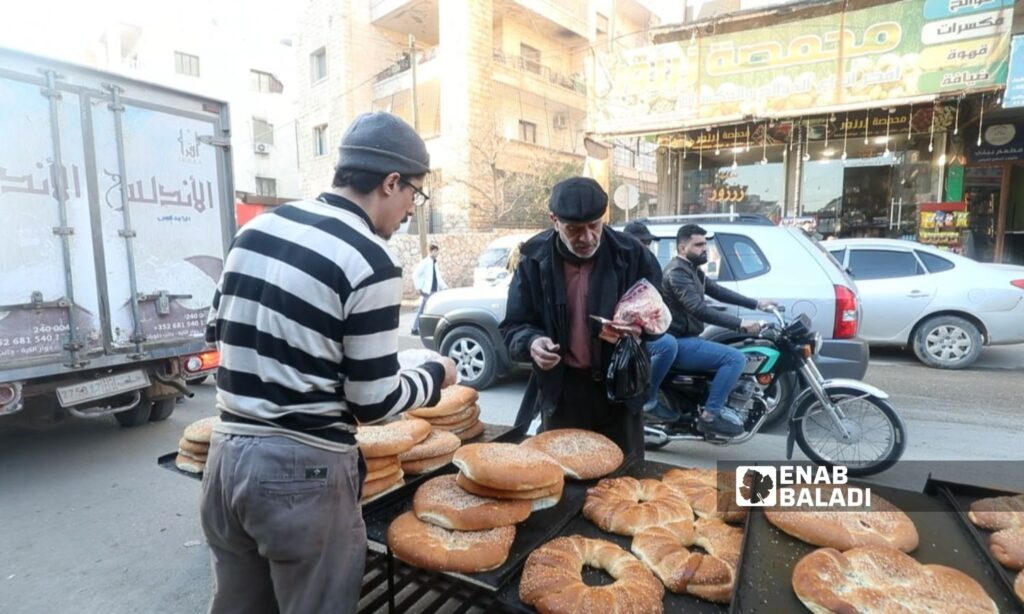Idlib – Anas al-Khouli
On a stall for selling Ramadan beverages on one of the sidewalks of Idlib’s streets, Amer, a young man, has settled during the month of Ramadan which started on the current 11th of March, as a respite from his exhausting job in loading construction materials (porterage).
Amer al-Sayed (35 years old) resorted to working on the stall, hoping to make something extra in profits over his daily wage from the demanding porterage profession with construction contractors, which reaches 100 Turkish liras.
Ramadan constituted an opportunity to earn money, and there was an increase in the spread of juice and beverage stalls which bring in decent profits. According to Enab Baladi‘s monitoring, most of the stall owners are from the intermittent day laborers (agricultural works, constructions, and others).
Day laborers in Idlib earn 100 Turkish liras at best (about three US dollars), which is a low amount compared to the list of needs, as the recognized poverty line reached 10,843 Turkish liras, and the extreme poverty line to 8,933 liras.
Additional work
The spread of stalls and exploiting the Ramadan season does not necessarily mean securing more profits than day labor work, as the purchasing power of the residents is low and limited to essentials. Therefore, some individuals try to stick to day labor along with selling drinks and maarouk during specific hours.
Othman al-Hamed (31 years old), a day laborer in the construction field, told Enab Baladi that the weather is cold and he does not feel the fatigue of fasting like in previous years, and he ends his work at three-thirty in the afternoon (i.e., three hours before Maghrib prayer), which allows him to sell some maarouk.
Al-Hamed prefers to keep his strenuous job of loading blocks and cement, and selling at the stall in the remaining three hours to increase his income.
The price of a liter of licorice and tamarind varies between 10 and 15 and 20 Turkish liras, and a kilogram of maarouk between 55 and 60 liras (the kilo includes small pieces of maarouk), and the medium-sized maarouk is sold for 15 to 20 liras, and the large one for 30 liras, with the price increasing according to the filling.
The return of the stall ranges from 75 to 150 liras in profits, depending on the number of hours worked (some work for three to four hours).
Weak turnout
Saeed Abdoun (41 years old), a displaced person living in the city of Idlib, sells maarouk bread in the al-Hal vegetable market along with his work as a porter, said that the turnout has declined after the first days of Ramadan.
He noted that the decline in citizens’ financial status forced them to significantly reduce their daily expenses, and maarouk became a luxury, so having more maarouk pieces caused him losses.
With the arrival of Ramadan, the prices of most goods rose, and the poor financial condition prevented a large segment of the residents in northern Syria from buying food supplies, amidst hopes for many of them to obtain food baskets that cover part of the need.
4.5 million people live in northwest Syria, 4.1 million of them are in need of assistance, and 3.3 million of them suffer from food insecurity, 2.9 million are internally displaced, and two million live in camps, according to the United Nations, while local statistics speak of 5.5 to 6 million people.

